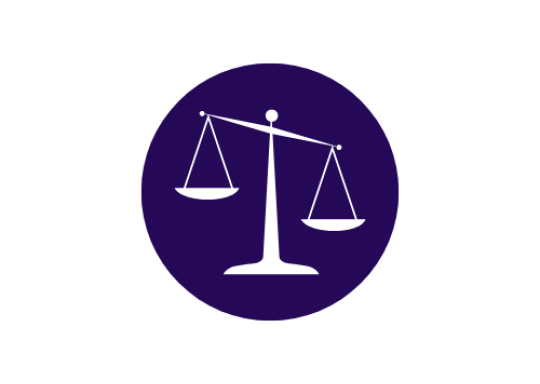Complaining about local authority decisions
This factsheet covers what to do if you are not happy with an assessment decision (or a failure to make a decision) made by your local authority/council. It is useful if you have a complaint about:
- the behaviour of local authority staff
- community/social care assessments
- direct payments assessments
- disabled facilities grants assessments
- housing grants assessments
- personalisation and individual budgets assessments
- residential care assessments
This factsheet does not cover complaints about decisions on housing benefit and council tax benefit as these are covered by a separate appeal system. For information on this see - appeals and mandatory reconsideration.
Contents
Local authority complaints procedure
Default power of the Secretary of State
Where can I get more help or information?
What you can do
There are a number of ways you can complain, these are explained below.
Local authority complaints procedure
Each local authority in England, Northern Ireland ,Scotland and Wales has a complaints procedure. Each must publicise its complaints procedure and provide you with information regarding the action you can take if you are unhappy about the assessment or the services to be provided at the time of the care assessment or when you are informed of any charge.
You should always complain to your local authority in the first instant.
Advocacy service
Get in touch with your local advocacy service to assist you in writing a letter of complaint and in representing you.
Your local councillor or MP
Your local councillor or MP may also make representations and enquiries on your behalf at any stage of your complaint though it is probably better to contact them as early as possible. If you don't know the name of your councillor or MP or how to contact them you can find out from your local library or Town Hall. You can also contact the House of Commons Information Office on 0207 219 4272 to find out the name of your MP, including Scottish Parliament and Welsh Assembly MPs, or visit http://findyourmp.parliament.uk/.
Default power of the Secretary of State
Under Section 7D of the Local Authority Social Services Act 1970 the Secretary of State for Health has the power to step in where a local authority fails to comply with its statutory community care duties and has "no reasonable excuse" for this failure. This power has never been used and it is unlikely that it will ever be used except in the most extreme circumstances.
However if someone wrote to the Department of Health alleging that a local authority had failed to comply with its statutory community care duties it is likely that the Department would in turn write to the local authority for an explanation. This might force the local authority to look into the complaint once more.
The ombudsman
The ombudsman can investigate your complaint where there has been "maladministration". This can include:
- unreasonable delay
- bias or unfairness
- failure to follow proper procedures
- poor standards of decision-making
- incompetence.
Normally your complaint must have arisen within the previous 12 months and you are expected to have tried every other available remedy, such as using or trying to use the local authority complaints procedure. The ombudsman's complaint form also asks you if you have contacted your local councillor.
You complain to a different ombudsman for each country.
- the Local Government Ombudsman for England (for complaints about adult go to www.lgo.org.uk/adult-social-care/)
- the Northern Ireland Ombudsman
- the Scottish Public Services Ombudsman
- the Public Services Ombudsman for Wales
You can find links to these on the British and Irish Ombudsman Association at www.ombudsmanassociation.org/.
Judicial Review
You can also apply to the courts for a judicial review if you think that a decision was made without properly following the law. If you are successful the court will normally overturn the unlawful decision or action. You will need a solicitor if you want to apply for judicial review. Unity Law may be able to help. Visit: www.unity-law.co.uk or call Unity Law on 0114 361 0000.
Legal advice
Civil Legal Advice (CLA)
Get free and confidential legal advice in England and Wales if you’re eligible for legal aid.
Check if you can get legal aid to see if you’re eligible for free advice.
Civil Legal Advice
Online enquiry form
0345 345 4 345
Minicom: 0345 609 6677
Disability Law Service
Disability Law Service provides specialist legal advice for disabled people, their families and carers on the following subjects:
- Community Care
- Employment
Telephone: 020 7791 9800 (Minicom: 020 7791 9801) - Monday to Friday 10.00am - 5pm
Website: www.dls.org.uk
Maxwell Gillott
Telephone: 01524 596080
Email: office@mglaw.co.uk
Website: www.maxwellgillott.com
Fisher Merdith
Website: www.fishermeredith.co.uk
Fry Law
If you are being treated less favourably because of your disability in work (or in seeking work), Unity Law may be able to help.
Telephone: 0114 361 0000
Website: www.frylaw.co.uk/
Human Rights Law
You may be able to complain on the grounds that a decision contravenes your human rights. For more information about this see Factsheet F1 - human rights act. You will need to seek legal advice.
Actions for damages
Where a council has failed to act legally in a way that has affected you as an individual you may be able to obtain legal damages through the courts. You will need to seek legal advice in these cases.
Where can I get more help or information?
This factsheet is a basic overview of complaining about local authority decisions. You can find out more detailed information in our Disability Rights Handbook. This and all our other publications are available from our shop.
For further help and information please contact our Advice Line - 0330 995 0404.
You can get more information about where to get personal advice from our free resource Getting Advice. All our resources are free to download on our website at disabilityrightsuk.org.



